Travelling with pets can be a rewarding experience, but it also comes with its own set of challenges and complexities. One of the most crucial aspects to consider when planning to travel with your pet to the United Kingdom is understanding the country’s specific quarantine and importation regulations. These rules are in place to protect both the local animal population and public health. Failing to adhere to these regulations can result in delays, additional costs, and even the deportation of your pet.
Why Do Pets Need Appropriate Documentation and Why Are There Quarantine Requirements?
The United Kingdom has stringent regulations concerning the importation of pets to ensure that diseases like rabies are not introduced into the country. Appropriate documentation serves as proof that your pet is healthy and has received all necessary vaccinations. This usually includes a pet passport or third-country official veterinary certificate, proof of microchipping, and evidence of required vaccinations, among other things.
Quarantine requirements exist to further mitigate the risk of disease transmission. Pets that do not meet the entry requirements may be placed in quarantine for a specified period, during which they will be observed and possibly tested for diseases. The length and conditions of the quarantine can vary depending on several factors, including the type of pet and its country of origin.
Understanding and complying with these regulations is not just a legal obligation but also a crucial step in ensuring a smooth and stress-free travel experience for you and your pet.
Importing Dogs to the United Kingdom
Required Permits and Documentation
When importing a dog to the United Kingdom, there are several key documents and permits you’ll need to prepare in advance to ensure a smooth entry process:
- Pet Passport or Third-Country Official Veterinary Certificate: This document should contain details of the dog’s microchip, rabies vaccination, and tapeworm treatment.
- Microchip: Your dog must be microchipped by a qualified veterinarian. The microchip should comply with ISO 11784 or Annex A to ISO 11785 standards.
- Rabies Vaccination: Your dog must be vaccinated against rabies at least 21 days before travel but not older than the vaccine’s validity period.
- Tapeworm Treatment: Dogs must be treated for tapeworm 24 to 120 hours before entering the UK.
- Animal Health Certificate (AHC): If you’re travelling from a non-EU country, an AHC is required and must be issued by a certified veterinarian.
- Declaration Form: A signed declaration stating the reason for movement (e.g., not for sale or change of ownership) may also be required.
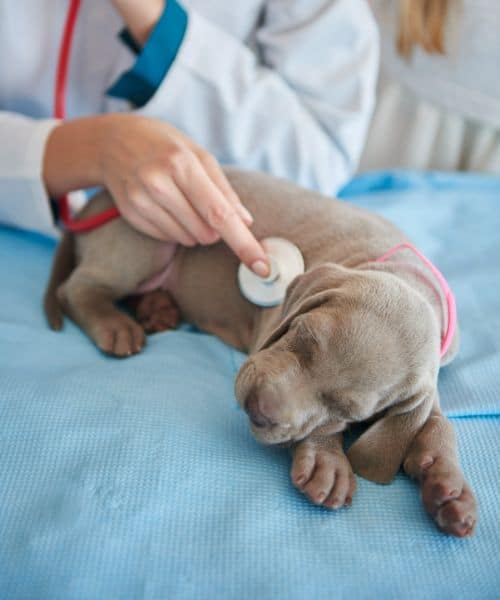
Dog Quarantine Requirements
The United Kingdom has strict quarantine regulations to prevent the spread of diseases like rabies. Here are some key points to consider:

- Rabies Testing: If coming from an unlisted third country, a blood test may be required at least three months before travel.
- Quarantine Facilities: If your dog doesn’t meet the entry requirements, it may be placed in an approved quarantine facility for up to four months.
- Costs: Quarantine can be expensive, and you will be responsible for all costs incurred during the stay.
- Health Monitoring: During the quarantine period, your dog will be observed for any signs of diseases and may undergo additional tests.
- Release: Your dog will be released from quarantine only after it has met all health requirements and passed all tests.
Understanding and adhering to these requirements is crucial for a hassle-free experience when importing your dog to the United Kingdom.
Importing Cats to the United Kingdom
Required Permits and Documentation
When it comes to importing a cat into the United Kingdom, there are several essential documents and permits you must have in place:
- Pet Passport or Third-Country Official Veterinary Certificate: This should include details about the cat’s microchip, rabies vaccination, and sometimes tapeworm treatment.
- Microchip: Before any vaccinations, your cat must be microchipped by a qualified veterinarian. The microchip should be compliant with ISO 11784 or Annex A to ISO 11785 standards.
- Rabies Vaccination: Your cat must be vaccinated against rabies at least 21 days before travel but not older than the vaccine’s validity period.
- Animal Health Certificate (AHC): If you’re travelling from a non-EU country, an AHC is required and must be issued by a certified veterinarian within ten days of travel.
- Declaration Form: A signed declaration stating the reason for movement (e.g., not for sale or change of ownership) may also be required.
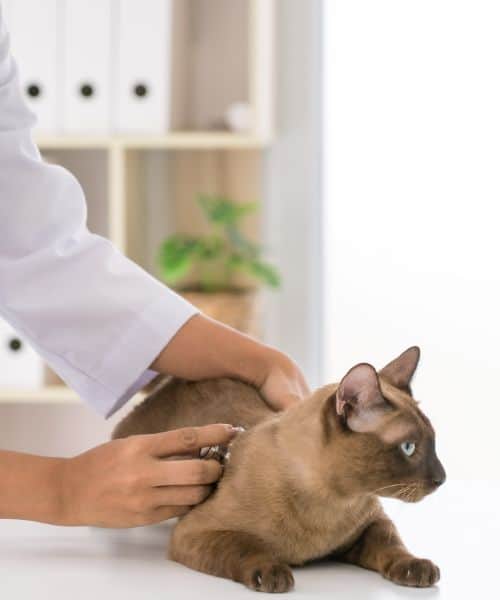
Cat Quarantine Requirements
The United Kingdom has stringent quarantine regulations to prevent the introduction of diseases like rabies. Here’s what you need to know:
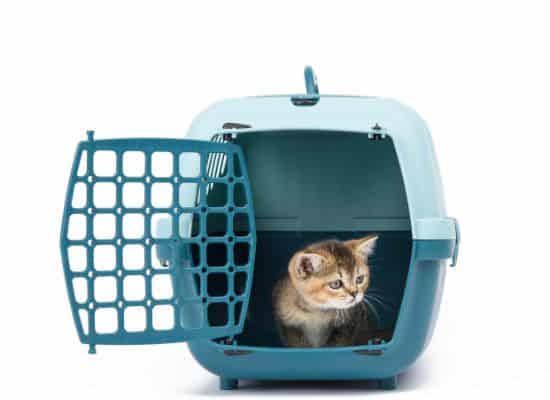
- Rabies Testing: If coming from an unlisted third country, a blood test may be required at least three months before travel.
- Quarantine Facilities: If your cat doesn’t meet the entry requirements, it may be placed in an approved quarantine facility for up to four months.
- Costs: Be prepared to cover all costs associated with the quarantine, which can be quite expensive.
- Health Monitoring: During the quarantine period, your cat will be monitored for any signs of diseases and may undergo additional tests.
- Release: Your cat will only be released from quarantine after meeting all health requirements and passing all tests.
By understanding and following these requirements, you can ensure a smoother process when importing your cat to the United Kingdom.
Importing Birds to the United Kingdom
Required Permits and Documentation
Importing birds to the United Kingdom involves a series of legal requirements and documentation to ensure that the birds are healthy and free from diseases. Here are the key documents and permits you’ll need:
- Import Licence: An import licence from the Animal and Plant Health Agency (APHA) is mandatory for bringing birds into the UK.
- Health Certificate: A health certificate issued by a certified veterinarian in the country of origin is required. This certificate should confirm that the bird is free from avian diseases like Avian Influenza.
- CITES Permit: If the bird species is listed under the Convention on International Trade in Endangered Species (CITES), you’ll need a CITES permit.
- Identification: Each bird should be individually identified, usually through a closed leg ring or microchip.
- Transport Documentation: You’ll need to provide details about the mode of transport, including the airline and flight number or vehicle details if travelling by road.
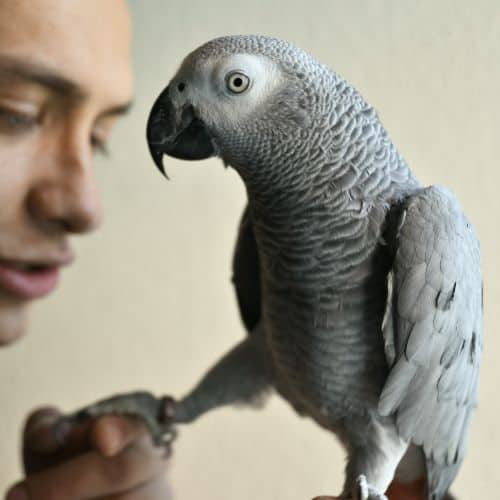
Bird Quarantine Requirements
The UK has strict quarantine measures to prevent the spread of avian diseases. Here’s what you should know:
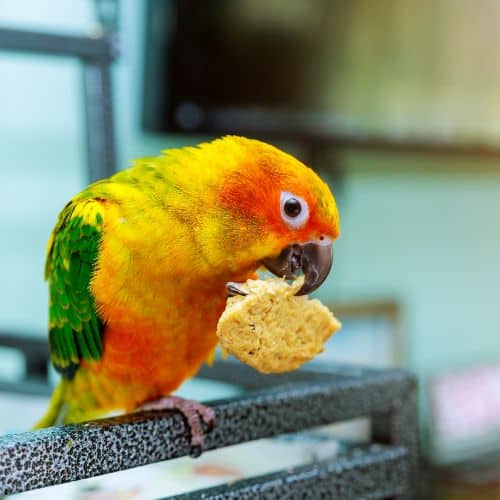
- Quarantine Period: Birds may be required to undergo a quarantine period of up to 30 days in an approved facility.
- Health Checks: During the quarantine period, the birds will be subjected to health checks and possibly further testing for diseases like Avian Influenza.
- Isolation: Birds are usually isolated from other animals during the quarantine period to prevent any potential spread of disease.
- Costs: All costs associated with the quarantine, including testing and boarding, are the responsibility of the owner.
- Release: Birds will be released from quarantine only after they have been declared healthy and free from any contagious diseases.
Understanding these requirements and preparing the necessary documentation in advance can make the process of importing your bird to the United Kingdom much smoother.
Importing Exotic Pets to the United Kingdom
Required Permits and Documentation
Importing exotic pets into the United Kingdom involves a complex set of regulations to ensure the well-being of the animal and to protect local ecosystems. Here are the essential permits and documents you’ll need:
- Import License: An import license from the Animal and Plant Health Agency (APHA) is generally required for all exotic pets.
- CITES Permit: For animals listed under the Convention on International Trade in Endangered Species (CITES), a CITES permit is mandatory.
- Health Certificate: A health certificate issued by a certified veterinarian in the country of origin is required. This should confirm that the animal is free from any diseases that are of concern to the UK.
- Microchipping: Many exotic pets, such as reptiles, need to be microchipped for identification purposes.
- Proof of Ownership: Documents proving you are the legal owner of the pet may also be required.
- Transport Documentation: Information about the mode of transport, including airline and flight number or vehicle details if travelling by road, is necessary.
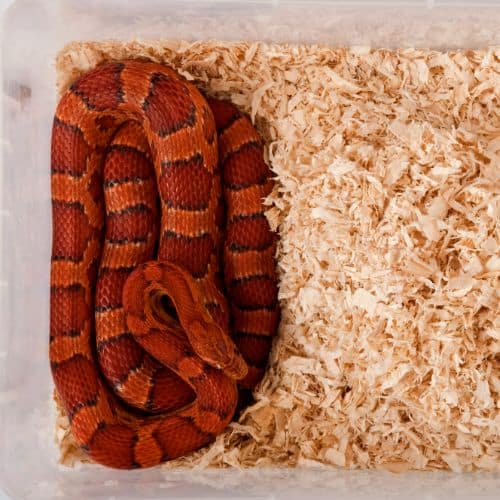
Exotic Pet Quarantine Requirements
The UK has stringent quarantine laws to prevent the introduction of diseases and parasites. Here’s what you should know:
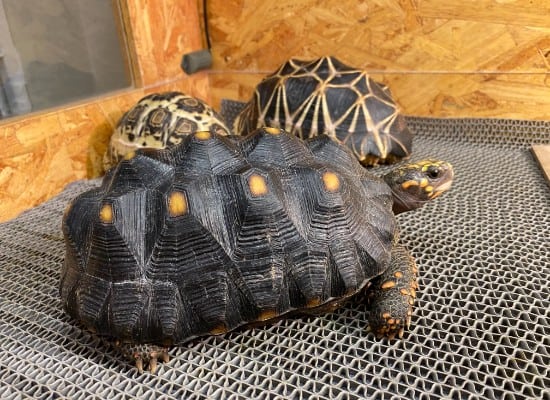
- Quarantine Period: Exotic pets may be required to undergo a quarantine period in an APHA-approved facility. The length of this period can vary depending on the species and its country of origin.
- Health Checks: During the quarantine, the pet will undergo various health checks and may be tested for specific diseases or parasites.
- Isolation: The pet will be isolated from other animals to prevent the potential spread of diseases.
- Costs: The owner is responsible for all costs associated with the quarantine, including testing and boarding fees.
- Release: The pet will only be released from quarantine after it has been declared healthy and free from any diseases or parasites.
By understanding these requirements and preparing the necessary documentation well in advance, you can ensure a smoother process when importing your exotic pet to the United Kingdom.
How to Avoid Pet Quarantine in the United Kingdom
Avoiding pet quarantine in the United Kingdom is a challenging task due to the stringent regulations in place to protect public health and native ecosystems. However, there are some steps you can take to minimise the chances or duration of quarantine:
- Pre-Travel Health Checks: Ensure your pet undergoes all necessary health checks and vaccinations well in advance of travel. This can sometimes negate the need for quarantine if the UK authorities are satisfied that your pet poses no health risk.
- Country of Origin: Pets coming from certain countries with a low risk of diseases like rabies may be exempt from quarantine.
- Documentation: Ensure all your paperwork, including health certificates and permits, is in perfect order. Any discrepancies can lead to delays and mandatory quarantine.
- Pet Passport: For certain animals, a pet passport containing all medical history can expedite the process.
- Consult a Veterinarian: A certified veterinarian can provide advice tailored to your pet’s specific needs, potentially helping you avoid quarantine.
- Direct Travel: Try to travel as directly as possible to the UK. Transiting through countries with high disease risks could necessitate quarantine.
- APHA Pre-Approval: Contact the Animal and Plant Health Agency (APHA) before travel to get pre-approval, which can sometimes help in avoiding quarantine.
- Legal Advice: Consult with legal experts familiar with pet importation laws in the UK. They can guide you through loopholes or lesser-known regulations that may help you avoid quarantine.
How to Choose the Right Pet Travel Agency for Your Pet’s Travels to the United Kingdom
Choosing the right pet travel agency is crucial for a smooth and stress-free experience when travelling to the United Kingdom. Here are some factors to consider:
- Experience: Look for agencies that have a proven track record in pet travel, particularly to the UK, which has specific and stringent regulations.
- Services: Ensure the agency offers comprehensive services, including permit applications, quarantine arrangements, and transportation.
- Certifications: The agency should be certified by relevant authorities and should adhere to animal welfare standards.
- Consultation: A good agency will offer a pre-travel consultation to assess your pet’s health and any specific needs it may have.
- Transparency: Costs should be clearly outlined, with no hidden charges.
- Customer Reviews: Look for customer testimonials or reviews to gauge the agency’s reputation.
- Emergency Support: Ensure the agency offers 24/7 support in case of emergencies during transit.
- Customised Plans: The agency should be able to offer customised travel plans that cater to your pet’s specific needs, including any medical conditions they may have.
By carefully considering these factors, you can make an informed decision and choose the best pet travel agency for your needs. This will go a long way in ensuring that your pet’s journey to the United Kingdom is as smooth and stress-free as possible.
Why Choose Petport for Your Pet’s Travel Needs?
Choosing Petport for your pet’s travel needs is a decision you won’t regret. With years of experience in the industry, we understand the complexities and challenges of pet travel, especially when it comes to navigating the stringent regulations of countries like the United Kingdom. Here’s why Petport is your best choice:
- Expertise in Documentation: We handle all the paperwork, ensuring that all permits and documents are in perfect order to avoid any delays or quarantine.
- Personalised Care: Every pet is unique, and we offer customised travel plans to cater to your pet’s specific needs.
- Certified Professionals: Our team consists of certified veterinarians and pet travel experts who are well-versed in international pet travel regulations.
- 24/7 Support: We offer round-the-clock support to address any concerns or emergencies, ensuring a stress-free experience for you and your pet.
- Ethical Practices: Animal welfare is our top priority. We adhere to the highest standards of care and ethical practices.
- Transparent Pricing: No hidden fees or surprise charges. We offer competitive pricing with complete transparency.
- Global Network: Our extensive network of partners worldwide ensures that we can offer the most convenient and comfortable travel arrangements for your pet.
- Customer Satisfaction: Our glowing customer reviews speak volumes about our commitment to service and care.
Choose Petport for a hassle-free, comfortable, and safe journey for your beloved pet.
FAQ Documentation and Quarantine the United Kingdom
What documents are required for importing pets into the UK?
Answer: You’ll need a pet passport or third-country official veterinary certificate, proof of microchipping, and proof of rabies vaccination. Some pets may also require a tapeworm treatment certificate.
How long is the quarantine period for pets in the UK?
Answer: The quarantine period can vary, but it’s typically 21 days if all conditions are met. Failure to meet the requirements can result in a longer quarantine period.
Can I avoid quarantine for my pet in the UK?
Answer: Yes, you can avoid quarantine by ensuring all vaccinations and treatments are up-to-date and by obtaining all necessary permits and certificates in advance.
Is it safe to sedate my pet for the journey?
Answer: Sedation is generally not recommended unless advised by a veterinarian. It can have adverse effects on your pet’s health during travel.
What is a pet passport and how do I get one?
Answer: A pet passport is a document that records all of your animal’s necessary vaccinations and treatments. You can obtain one from your veterinarian.
Can I bring exotic pets into the UK?
Answer: Importing exotic pets is subject to strict regulations and usually requires special permits. Some species may be prohibited altogether.
What are the rules for importing birds?
Answer: Birds are subject to additional checks and may require a period of quarantine. You’ll also need specific health certificates for avian species.
How does Brexit affect pet travel to the UK?
Answer: Brexit has led to changes in pet travel regulations. It’s essential to check the most current guidelines as they can change.
What should I look for in a pet travel agency?
Answer: Look for experience, certifications, and positive customer reviews. The agency should also offer comprehensive services, including documentation and quarantine arrangements.
Why should I choose Petport for my pet’s travel to the UK?
Answer: Petport offers expertise in UK pet travel regulations, personalised care plans, and 24/7 support, making your pet’s journey as smooth as possible.
Choose Petport for a seamless, stress-free pet travel experience to the United Kingdom.


